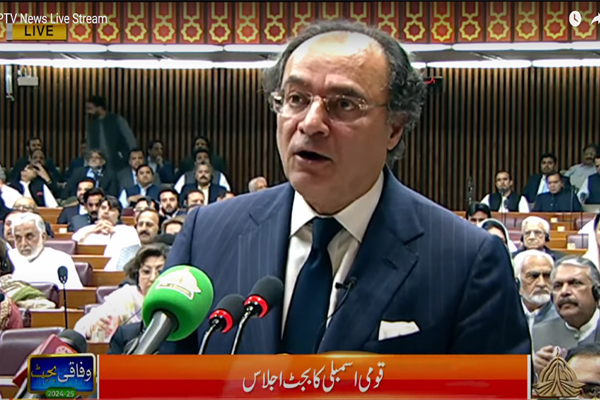PTBP Web Desk
The federal cabinet has approved the promulgation of an Income Tax Ordinance, aiming to revise the Advance Deposit Ratio (ADR) of banks, with expectations to generate an additional revenue of Rs70-75 billion by the end of December 2024. The ordinance is currently awaiting the President’s signature to become effective.
According to informed sources, the proposed ordinance seeks to modify the calculation of profits for banks related to ADRs. The changes involve shifting from a ratio-based system to a fixed maximum slab. Under this new arrangement, the tax rate for the banking sector would increase from 39% to 44%, in line with the agreed formula. This adjustment is expected to yield approximately Rs75 billion in taxes from the banking sector.
Previously, the ADR system operated on varying slabs. The proposed adjustment will streamline the process by applying a uniform tax rate of 44% on profits earned through advances in government securities. This move aligns with the federal government’s broader efforts to enhance revenue generation.
To ensure the successful implementation of these changes, Prime Minister Shehbaz Sharif established a high-powered committee led by Deputy Prime Minister Ishaq Dar. The committee’s members include the Minister for Finance and Revenue, Law Minister, Minister of State for Finance and Revenue, Attorney General of Pakistan, Finance Secretary, Chairman of the Federal Board of Revenue (FBR), Governor of the State Bank of Pakistan, and legal expert Asma Hamid.
The committee was assigned specific Terms of Reference (ToRs) to achieve the desired outcomes. These include:
Review of Existing Legal Framework: Examining the current fiscal measures related to the ADRs in the banking sector.
Alternative Fiscal Schemes: Exploring new taxation models for bank profits derived from investments in government securities.
Engagement with the Banking Sector: Facilitating discussions with stakeholders to develop a consensus on the proposed changes.
Revenue Realization: Formulating recommendations to ensure the government achieves its revenue targets by December 31, 2024.
Non-Fiscal Regulatory Measures: Suggesting strategies to encourage increased advances to the private sector, thereby boosting economic activity.
The ordinance’s implementation is expected to strengthen fiscal discipline and optimize government revenues. By targeting profits from investments in government securities, the government aims to reduce reliance on other revenue streams and ensure a fair contribution from the banking sector. Additionally, the proposed measures could incentivize banks to extend more credit to the private sector, stimulating economic growth.
The ordinance requires the President’s approval to be promulgated. Once signed, the revised tax rates will come into effect, compelling banks to comply with the updated fiscal framework. The committee’s ongoing deliberations will also play a crucial role in ensuring the smooth execution of these reforms.




